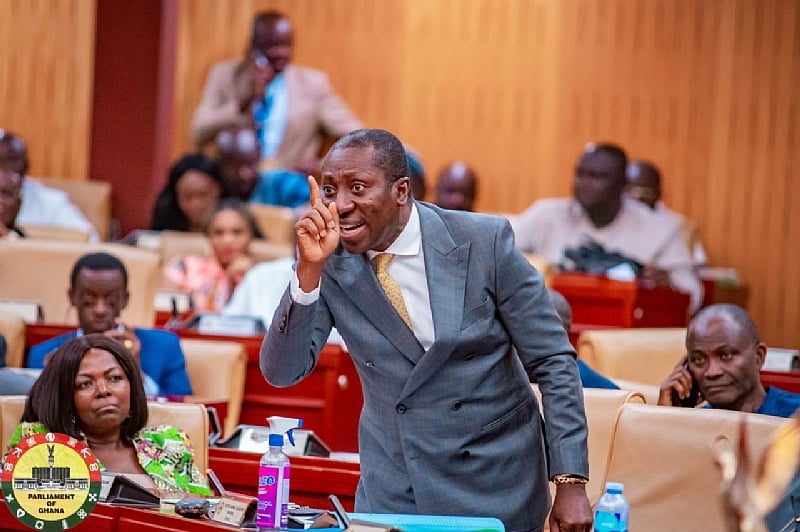The removal of Chief Justice Gertrude Araba Esaaba Sackey Torkonoo from her position has sparked controversy within Ghana’s political landscape, particularly from the Minority caucus in Parliament. President John Mahama’s decision, following the recommendations of a five-member committee of inquiry, has been met with accusations of political motivation, raising concerns about the balance between accountability and the potential for partisan influence within the judicial system. The committee’s findings cited unlawful expenditure of public funds, abuse of discretionary power, and interference in judicial appointments as justification for Justice Torkonoo’s removal. However, the Minority’s perspective casts doubt on the objectivity of these findings, suggesting that the process was tainted by political considerations rather than a genuine pursuit of accountability.
The Minority Leader, Alexander Afenyo-Markin, articulated these concerns during a meeting with the UK Minister for International Development, characterizing the removal as a politically driven act. He expressed the Minority’s dissatisfaction with the process, arguing that it appeared to be more about political maneuvering than upholding accountability. This stance reflects a broader apprehension within the opposition about the potential misuse of accountability mechanisms to target political rivals. The Minority’s argument centers on the notion that while investigations into the conduct of former officials are a legitimate aspect of democratic governance, they should be conducted impartially and without the appearance of political vendetta.
Afenyo-Markin further emphasized the need for humane application of the law, even within the context of accountability investigations. This point underscores the Minority’s concern about the treatment of opposition figures under the current administration. They argue that while holding individuals accountable is crucial, the process should not devolve into persecution or become a tool for political retribution. This concern highlights a fundamental tension in democratic societies: the need to balance the pursuit of justice and accountability with the protection of individual rights and due process.
The Minority’s criticism of Justice Torkonoo’s removal extends beyond the specific circumstances of her case to a broader critique of the current political climate. They allege a pattern of targeting opposition figures under the guise of accountability, creating an atmosphere of fear and intimidation. This perceived targeting raises concerns about the potential erosion of democratic norms and the independence of institutions, particularly the judiciary. The impartiality of the judiciary is essential for upholding the rule of law and ensuring that all citizens, regardless of political affiliation, are treated fairly and justly.
The Minority’s position highlights the delicate balance between pursuing accountability and safeguarding against political interference within democratic institutions. While holding public officials accountable for their actions is crucial for maintaining public trust and ensuring good governance, it is equally important to ensure that such processes are not manipulated for political gain. The controversy surrounding Justice Torkonoo’s removal underscores the need for transparency and impartiality in investigations into alleged misconduct, particularly when they involve high-ranking officials. A fair and impartial process is essential not only for ensuring justice in individual cases but also for preserving the integrity of democratic institutions and upholding the rule of law.
The case of Justice Torkonoo’s removal has thus become a flashpoint in the ongoing political discourse in Ghana, raising fundamental questions about the balance of power, the independence of the judiciary, and the potential for political interference in processes of accountability. The Minority’s vocal opposition signals a deeper concern about the trajectory of democratic governance under the current administration and the potential for the erosion of institutional integrity. This controversy underscores the importance of ongoing vigilance and robust public discourse to safeguard democratic principles and ensure accountability within all branches of government.














